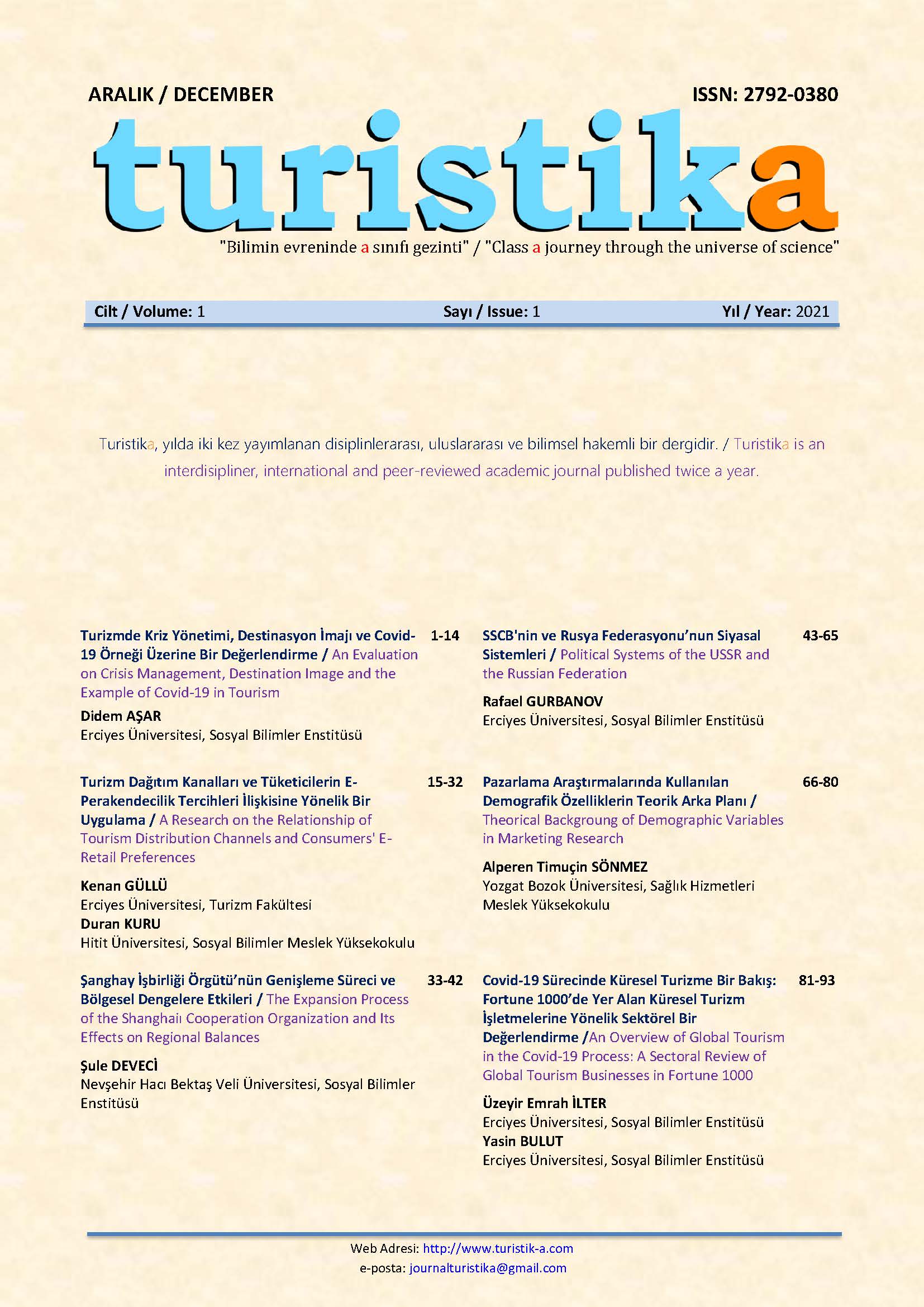The expansion process of the shanghai cooperation organization and its effects on regional balances

Published 31.12.2021
Keywords
- Regional Balance,
- China,
- Iran,
- Russia,
- Shanghai Cooperation Organization
- Bölgesel Denge,
- Çin,
- İran,
- Rusya,
- Şanghay İşbirliği Örgütü
How to Cite
Copyright (c) 2025 Şule Deveci (Yazar)

This work is licensed under a Creative Commons Attribution-NonCommercial-NoDerivatives 4.0 International License.
How to Cite
Abstract
Although the last century led to the creation of a unipolar world order, it has been observed that the ongoing global activity areas have changed with the new century. The Western nations that ruled the world faced the formation of new power blocks in the east and found their old sovereignty undermined. At this point, the Shanghai Cooperation Organization, which was born as a joint venture of Russia and China, leads the eastern power blocks. Thanks to the political, economic and military policies it has developed since its establishment, it has become an organization where the demands for membership have increased. Among its members, the world's economic giants China and India, Russia, whose political authority has been accepted by global circles, Pakistan, which plays a key role in the solution of the problem of terrorism, the Central Asian republics, which are a paradise of energy resources, and Iran, the important actor of the Middle East, which the West turns away from, the presence of the organization's global and regional It proves how critical it is for balances. In this study, the situation of regional balances created by the Shanghai Cooperation Organization will be analyzed with the help of its new members, thanks to the expansion policy it has maintained since its establishment.
References
- Baysoy, E. (2009). Rusya, AB, ABD ilişkileri bağlamında enerjinin ekonomi politiği ve küreselleşmenin jeopolitiği, Güvenlik
- Stratejileri Dergisi, 5(10), 59-81.
- Brzezinski, Z. (1998). Büyük satranç tahtası: Amerika'nın önceliği ve bunun jeostratejik gerekleri, Sabah Kitapları.
- Çelebi, S. (2009). Hindistan: Güney Asya’nın güncel jeopolitiği bağlamında uluslararası politikada mevcut ve muhtemel yeri, TC. Gazi Üniversitesi Sosyal Bilimler Enstitüsü Uluslararası İlişkiler Ana Bilim Dalı, Ankara.
- Deveci Ş, Güllü İ (2021). Türkiye’nin Yeniden Asya açılımının Türk dış ticaretine yönelik fırsatlar ve riskler bağlamında
- değerlendirilmesi, Erciyes Akademi Özel Sayı- Prof. Dr. Harun Güngör Anısına, 769-793
- Dilek, Ş., Özdemır, B. Z., İstikbal, D. (2019). Asya yüzyılında Türkiye-Çin rkonomik ilişkileri, Ankara SETA, https://www.setav.org/
- IMF,(2018). IMF DATAMAPPER,
- https://www.imf.org/external/datamappe r/NGDP RPCH@WEO/OEMDC/ADVEC/WE OWORLD
- Kahraman, E. (2016). Soğuk savaş sonrası dönemde Rusya Federasyonu-İran ilişkileri. Güvenlik Stratejileri Dergisi, 12(24), 29-70.
- SCO, (2021a). Joint Statement by the heads of State of the Republic of Kazakhstan, the People's Republıc of Chına, the Kyrgyz Republic, the Russian Federation, the Republic of
- Tajikistan, the Republic of Uzbekistan, http://eng.sectsco.Org/news/20210917/7 82639.html
- SCO,(2021b). The Astana Declaration of the Heads of State of the Shanghai Cooperation Organisation.
- http://eng.sectsco.org/documents/
- Singh, J. (1998). Against nuclear apartheid, Foreign Affairs, 41-52.
- Sinkaya, B. (2016). Yeni Ortadoğu jeopolitiğinde İran-Rusya ekseni. Ortadoğu Analiz, 8(72), 23-24.

